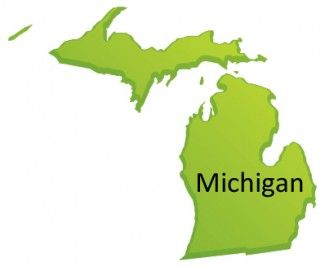The Michigan Supreme Court has ruled that dispensaries are illegal under local medical cannabis laws, a worst-case scenario for the state’s MMJ industry.
The ruling leaves no doubt about the legal status of the estimated 75-100 dispensaries in Michigan. These centers have been operating under hazy conditions for several years, given that the state’s medical marijuana law doesn’t specifically mention dispensaries. Now, local officials have clear justification for closing these dispensaries down.
But how many dispensaries actually close will depend on how aggressive the state and individual cities are in enforcing the laws.
“I think we’ll continue to see the same type of patchwork we see now, where dispensaries are in some cities and not in others,” said Matthew Abel, a local MMJ attorney. “Some municipalities have even licensed them, and I don’t think they’re going to change anything.”
Still, there will likely be casualties. It’s a shocking development for many cannabis professionals, who felt the momentum had shifted in their favor in recent months amid numerous positive developments. Just this week, a report revealed that Michigan generated $10 million in revenue – and a roughly $6 million surplus – from MMJ patient registration and renewal fees. The stats show the potential of the medical cannabis industry to lift the state our of the economic doldrums if Michigan decided to regulate and tax dispensaries.
The Supreme Court upheld a previous appeals court decision that the state’s MMJ law does not allow marijuana sales. Many dispensaries across Michigan closed after the ruling, but dozens stayed open in cities that chose not to target centers.
“The Court of Appeals reached the correct conclusion that defendants are not entitled to operate a business that facilitates patient-to-patient sales of marijuana,” the court wrote in the ruling (you can read the decision in its entirely here).
While the Michigan cannabis industry has lost a very large battle, the larger war is not over. Medical marijuana advocates will now redouble efforts to persuade lawmakers to overhaul the state’s medical marijuana act in a way that would allow dispensaries to exist in a regulated system.




